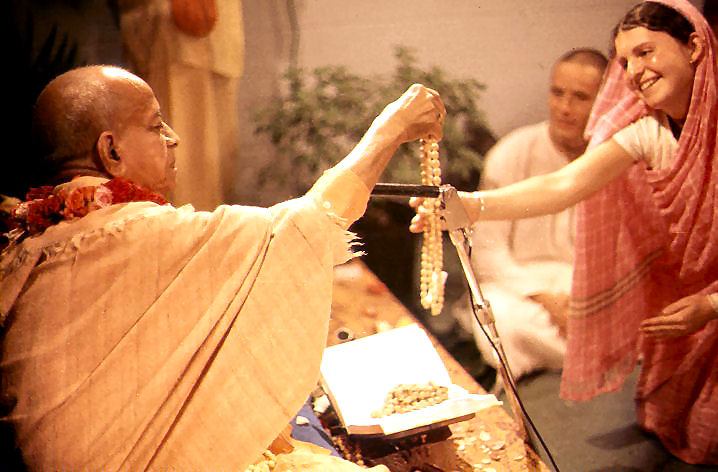Questions
- It is said in the scriptures that taking diksha is very important. In ISKCON we see many spiritual masters. How should one decide whom to choose?
2.Should one choose spiritual master himself or wait for mercy of Lord in the form of Spiritual master? Sometimes it is also said that one should not be for long time without a spiritual master. Please guide. - Is it that one should take initiation after one is fully convinced to fully surrender to his prospective guru or that one surrenders after taking initiation?
Answer by Romapada Swami :
Q. 1. It is said in the scriptures that taking diksha is very important. In ISKCON we see many spiritual masters. How should one decide whom to choose?
Please see Digest 00223 and our other discussions on the topic of Initiation, where similar questions are discussed.
Q. 2. Should one choose spiritual master himself or wait for mercy of Lord in the form of Spiritual master? Sometimes it is also said that one should not be for long time without a spiritual master. Please guide.
It is the duty of an aspiring spiritualist to seek a spiritual master earnestly, and equally important, to prepare one’s own heart to be ready to receive such guidance. Simultaneously, one should depend on the mercy of the Lord and pray.
Is it by effort or by grace? – the answer to that question is “Both.” Our effort is in eagerly reaching out for and receiving the mercy. Our effort in itself is insufficient without Krishna extending His causeless mercy, but our effort demonstrates our earnestness and sincerity, and opens our heart to readily receive the mercy.
Q. 3. Is it that one should take initiation after one is fully convinced to fully surrender to his prospective guru or that one surrenders after taking initiation?
At the time of initiation, the disciple is supposed to surrender himself fully. “diksha-kale bhakta kare atma-samarpana / sei-kale krishna tare kare atma-sama”
“At the time of initiation, when a devotee fully surrenders unto the service of the Lord, Krishna accepts him to be as good as Himself. (Cc Antya 4.192)
Thus, before the initiation during the time leading up to it, the devotee practices and prepares himself for a life of surrender (this stage is called purascarya). Surrender is a process, not a singular event; and initiation is a beginning, not a final accomplishment. Thus after initiation, the disciple should continue to progressively practice acting as a surrendered soul, with body, mind and words.







